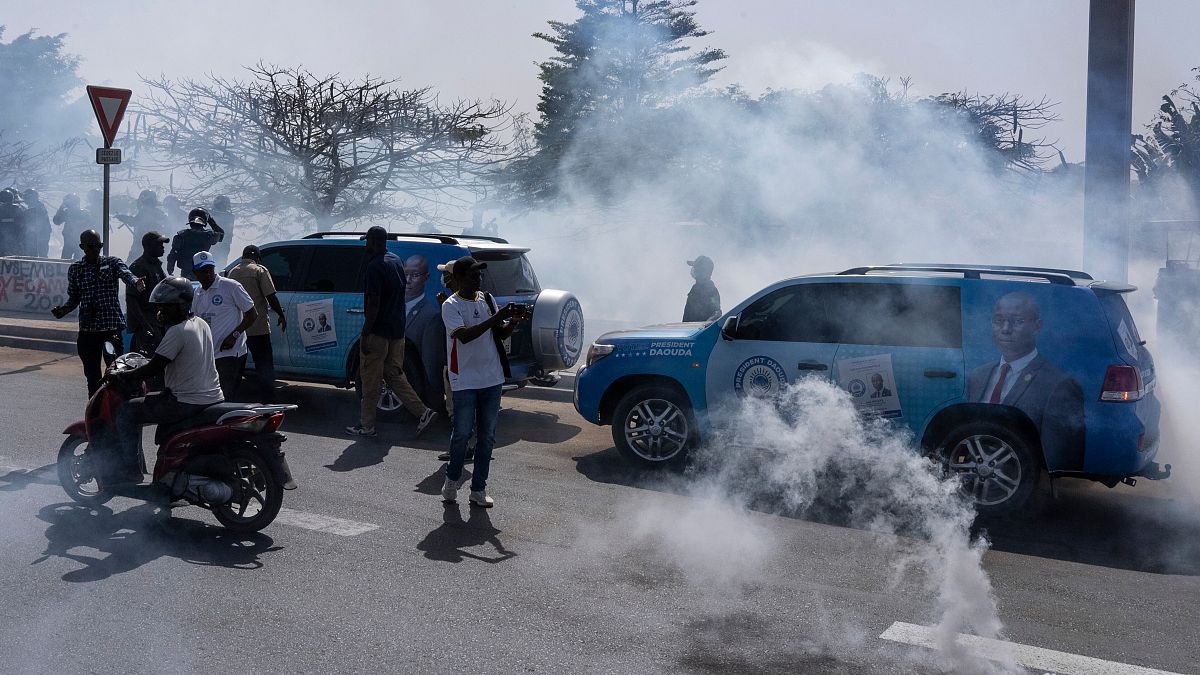Chaotic scenes in parliament have been followed by clashes on the streets of the capital city.
Senegal's parliament voted Monday to delay the country's presidential poll until December 15, sparking violent protests and international concern over the erosion of democracy in the West African country.
The bill was approved almost unanimously in a chaotic vote that saw several opposition lawmakers forcibly removed from the chamber by security forces.
President Macky Sall had announced his unprecedented decision to postpone the presidential election, initially scheduled for February 25, on Saturday.
The bill, backed by 105 members of the 165-seat chamber, significantly extends Sall’s tenure, which was due to end on April 2.
The move also sparked violent protests, with authorities on Monday restricting mobile internet access amid growing unrest on the streets of the capital, Dakar.
As the bill was debated by lawmakers, security forces fired tear gas at protesters gathered outside the legislative building. Many were arrested as they took to the streets, burning tires and criticising President Sall.
Two opposition parties have filed a court petition challenging the decision to postpone the ballot.
The parliament's ratification of the bill also casts considerable doubt over the reputation of the nation, which has long been seen as a bastion of stability in West Africa.
It comes amid a recent surge in violent coups in the region. Niger, Burkina Faso and bordering Mali have all in recent years seen violent takeovers of power by military juntas.
Political tensions have also run high in Senegal over the past year, with authorities cutting internet access from mobile phones in June 2023 when supporters of opposition leader Ousmane Sonko clashed with security forces.
Sonko is one of two opposition leaders whom election authorities disqualified from the final list of presidential candidates this month.
President Sall had previously said he would not be seeking a third term in office. In an attempt to justify his decision to postpone the vote, he cited an electoral dispute between the parliament and the judiciary regarding candidacies.
The African Union said its president had learnt about the proposed delay "with concern" and invited the Senegalese authorities to organise the election "as soon as possible."
The private Walf television network, whose signal was cut off as they broadcast the protests on Sunday, said their broadcasting license has been revoked.
“The government’s abrupt shutdown of internet access via mobile data and Walf TV’s broadcasting (...) constitutes a blatant assault on the right to freedom of expression and press rights protected by Senegal’s constitution,” Amnesty International’s regional office for West and Central Africa said in a statement.
